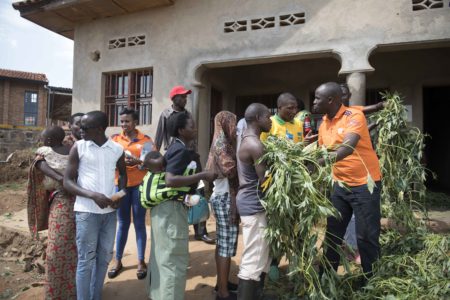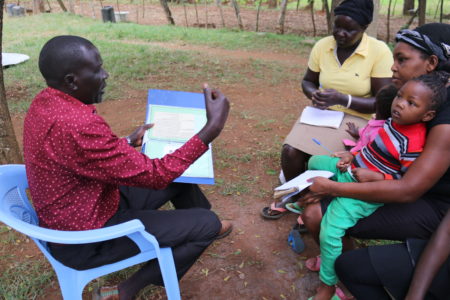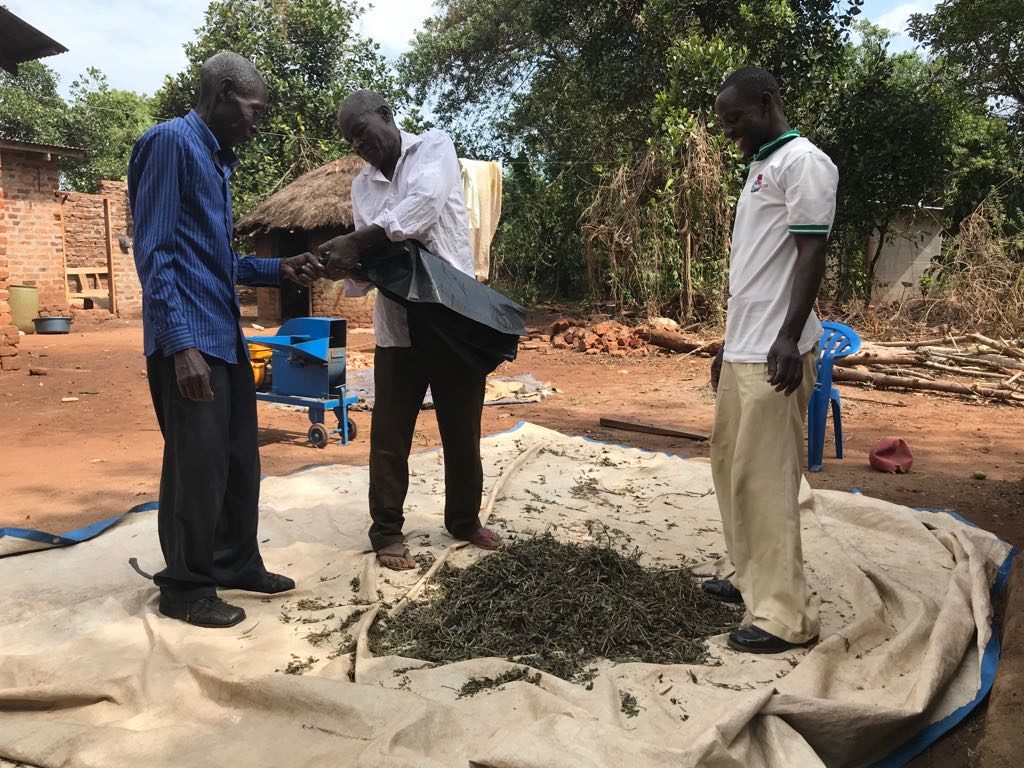“We make sure that both men and women are benefiting from our research and that neither is harmed”, says Netsayi Norris Mudege concerning the International Potato Center’s (CIP) research for development portfolio in sub-Saharan Africa.
With the backing of evidence based research, conducted in various countries in Africa and Asia, Netsayi—CIP’s Gender Research Coordinator—ensures gender responsive approaches are integrated into existing donor funded projects led by CIP and partners. While this is not an easy task, the results are encouraging. CIP’s gender responsive and transformative approaches continue to yield far better results contributing to zero hunger, improved nutrition and better income opportunities for both women and men across farming communities in Africa.
Approaches in production and nutrition training

Proper implementation of gender responsive approaches calls for an understanding of the gender roles in a certain community. For instance, in Malawi and Ethiopia, women are involved in production of both potato and sweetpotato. However, interventions in various communities in these countries mostly reached men with training opportunities.
In that respect, you are doing harm because the women who are producing sweetpotato are not having access to new knowledge, new technologies and once that crop is commercialized they may also be left behind”, explains Netsayi. Pointing out these gaps in project implementation has ensured women are not left behind in Malawi, Mozambique and Ethiopia when it comes to production training. They too are accessing new technologies and knowledge to increase their productivity.
Read about these findings: The role of gender norms in access to agricultural training in Chikwawa and Malawi.

Likewise, nutrition related interventions have always targeted women rather than men. However, CIP’s research has shown men to be central in making nutrition related decisions within households. “Men decide on distribution of land for agricultural crops. Without knowledge on nutrition, and where the focus is on market returns, men may not adopt a crop like orange-fleshed sweetpotato (OFSP) that is high in pro-vitamin A, hence beneficial to expectant women and children under five”, says Netsayi. In Tanzania, for example, women recommended targeting men with nutrition training as this would lead to faster adoption of OFSP in the communities. This presented a new challenge for project teams who were disseminating nutritional information in places not frequented by men such as clinics. Subsequently, CIP projects designed new ways to reach men with nutritional information. These included male peer groups and integrating nutrition in other trainings attended by men such as marketing.
Gender transformative approaches, on the other hand, aim to change gender dynamics in a community towards more gender equal relations. For instance, in a nutrition related project implemented by CIP and partners in Rwanda, it was discovered community health workers who mostly comprised men, were keen to perform tasks such as vaccinations but not cooking demonstrations with nutritious OFSP. Yet these men were instrumental in reaching caregivers in their communities with practical nutrition messaging. Training these men on OFSP preparation equipped them with skills to do practical cooking demonstrations and nutritional counselling. Consequently, they were able to reach both women and men resulting in better health outcomes in the entire community.
Towards better policies for both women and men
New areas of gender research continue to be explored. With an aim to influence policy, research is being directed at understanding how existing policies and regulations provide opportunities or obstacles for men, women and young people to participate in seed businesses. In countries such as Kenya, Malawi and Rwanda, farmers need to be registered to produce seed. This has become a hindrance to women’s participation in this lucrative business due to lack of resources.
“At times women lack money to go through the registration process as well as training that leads to seed certification. In Malawi, for instance, we are looking at ways that can support women access finances needed for seed registration and certification.
A second emerging area is on mechanization which appears to benefit often men than women. Tools developed are not friendly to women. Work in Uganda established that although women wanted to take up sweetpotato silage production as a business enterprise, they were afraid of injuries when using the machines and had to rely on men. “We ensured these machines were adapted to make them friendlier and safer for women making them entrepreneurs. Mechanization reduces gender burdens for women”, says Netsayi.

Ultimately, CIP and CGIAR gender work aims at building a coherent body of knowledge on how gender norms influence men, women and youth to adopt innovations in agriculture and natural resource management. This will in turn ensure no one is left behind: certainly not women, men nor young people.
Further reading – Formative gender evaluation: technical report on the viable sweetpotato technologies in Africa – Tanzania project.
Article by Vivian Atakos Regional Communications Specialist - CIP Sub Saharan Africa
